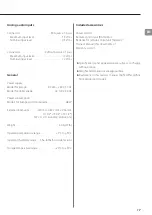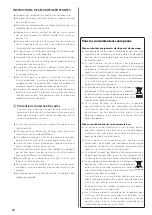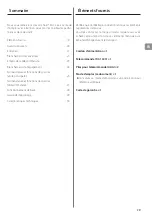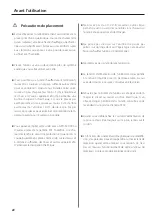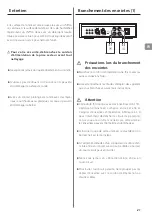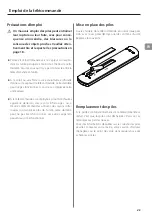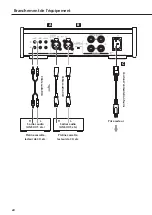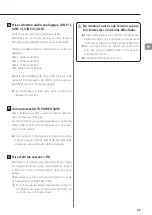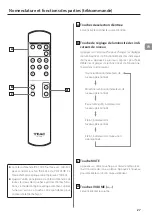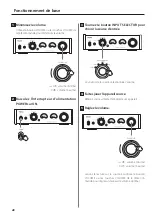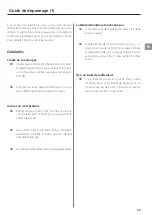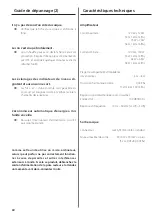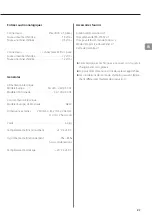
16
Specifications
Amplifier
Maximum output · · · · · · · · · · · · · · · · · · · · · · · · · ·120 W + 120 W
(4 Ω, 1 kHz, JEITA)
70 W + 70 W
(8 Ω, 1 kHz, JEITA)
Rated output · · · · · · · · · · · · · · · · · · · · · · · · · · · · · 100 W + 100 W
(4 Ω, 1 kHz, JEITA)
65 W + 65 W
(8 Ω, 1 kHz, JEITA)
Compatible speaker impedance range · · · · · · · · · · 4 Ω – 8 Ω
Total harmonic distortion · · · · · · · · · · · · · · · · · · · · · · · · · 0.005%
(1 kHz, 8 Ω, 1 W, JEITA)
S/N ratio (input short)
LINE IN · · · · · · · · · · · · · · · · · · · · · · · · · · · · · · · · · · · · 100 dB (IHF-A)
Frequency range · · · · · · · · · · · · 10 Hz – 60 kHz (+1 dB, −5 dB)
Headphones output
Connector · · · · · · · · · · · · · Standard 6.3 mm (1/4
"
) stereo jack
Maximum output level · · · · · · · · · · 50 mW + 50 mW or more
(32 Ω, THD+N 0.005%)
There is no sound from one side of the head-
phones.
e
Confirm that the headphones plug is inserted
completely.
Sound output suddenly stopped.
e
Heat might have caused the protection circuit to
activate. Set the POWER switch to OFF once, and
wait several minutes before restarting the unit.
The level meter lights are blinking and no sound
is output.
e
The + and − speaker cables might have shorted.
Turn the unit OFF and check the speaker
connections.
Automatic power saving caused the unit to enter
standby.
e
Shift the POWER switch to OFF once and then
turn the unit back ON.
Since a microcomputer is used in this unit, it might
not operate correctly sometimes due to noise and
other interference from outside the unit. If this
should occur, remove the AC cord from the power
socket and wait a while before repowering the unit
again.
Troubleshooting (2)
















